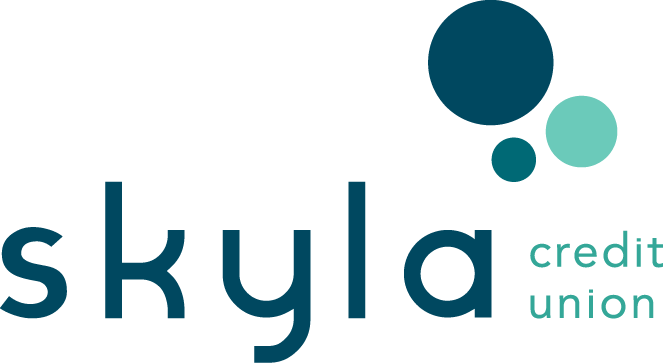What You Should Know about Adjustable Rate Mortgages
.png)
You may have heard the term "adjustable-rate mortgage" (or "ARM"). But what exactly is it? And should you consider getting one?
 A mortgage is a loan that helps you buy a house. An adjustable-rate mortgage is just like any other mortgage, but with one important difference: the interest rate can go up or down. This means that your monthly payments could change over time, depending on what happens to interest rates.
A mortgage is a loan that helps you buy a house. An adjustable-rate mortgage is just like any other mortgage, but with one important difference: the interest rate can go up or down. This means that your monthly payments could change over time, depending on what happens to interest rates.
ARMs can be a great option for some people. For example, if you think that interest rates will go down in the future, an ARM could be a way to save money on your mortgage. But there are also some risks to consider like if interest rates go up, your monthly payments could increase.
So, should you get an ARM? Before you say "yay or nay" here's what you need to know.
here's what we will cover
|
|
 what's an adjustable-rate mortgage (arm)?
what's an adjustable-rate mortgage (arm)?
An adjustable-rate mortgage (ARM) is a type of mortgage loan in which the interest rate is subject to change over time. The initial interest rate is set up with an initial fixed-rate period, which is typically 3, 5, 7, or 10 years. Once the fixed-rate period expires, the rate adjusts every six months (or yearly) depending on market conditions. ARMs are typically used by borrowers who expect to sell their property or refinance before the interest rate begins to rise.
How does AN ARM compare to a fixed-rate mortgage?
Fixed-rate mortgage loans, on the other hand, have interest rates that remain constant over the life of the loan. This predictability makes them a good choice for borrowers who plan to stay in their homes for many years. The tradeoff is that fixed-rate mortgages often have higher interest rates than ARMs, so borrowers will pay more in interest over the life of the loan.
here's a closer look at how an arm would work
An ARM is based on a 30-year term and is typically represented by two numbers; the first represents the fixed rate period. The shorter the fixed period, the lower the interest rate. The second number indicates how often the rate can adjust after the fixed period.
So, if you had a 5/1 ARM, the interest rate is fixed and will not change for the first 5 years. After 5 years, the rate will adjust each year for the remaining 25 years.
QUICK TIP: Did you know that at Skyla, if you have a 5/1 ARM, you could waive PMI Private Mortgage Insurance ? But the waiver is based on a few factors like your credit score and how much you have for a down payment. |
The huge misconception about ARMs is that many borrowers think they have to stay with an ARM. If your plans change or if you change your mind in being in the home, you can always refinance into a fixed rate or choose a mortgage option that makes sense for you. Having an ARM doesn't mean you have to stay with an ARM for the entire period!
.
QUICK TIP: An ARM has 3 different caps which control how the interest rate can adjust. However, the lifetime cap (which applies to the entire duration of the mortgage) is capped at 6%. |
 what are the benefits and risks of an ARM?
what are the benefits and risks of an ARM?
Benefit
- You may be able to qualify for a lower interest rate on your loan, which can save you money over the life of the loan.
- An ARM offers greater flexibility in terms of repayment options, which can be helpful if you want to move in the next few years or if you're expecting your income to change in the future.
- The potential for rising interest rates can work to the advantage of borrowers with an ARM mortgage since you’ll be able to lock in a lower rate before rates rise.
- Even though the interest rate will change, there are caps on how high an interest rate will increase.
- If you anticipate your income will increase significantly in the next few years, an ARM with a lower initial interest rate could help you keep your mortgage payments more affordable as your salary grows.
- An ARM with a low-interest rate gives you an opportunity to pay more in monthly payments, paying down the loan faster.
- Today's ARMs have no prepayment penalties. So, you can sell or refinance at any time!
Risks
Potential risks associated with an ARM include:
- The possibility of higher payments if interest rates rise.
- There's a chance that you may not be able to sell your home or refinance when you want. If your interest is at a fixed rate and you're not able to handle the payments, you could risk losing your house.
- Unlike fixed mortgage rates, ARMs could be confusing since there are fees and structures like how often your rate adjusts. You would have to stay mindful of the changes and be prepared for the worst-case scenario.
QUICK TIP: Although there is a risk when getting an ARM, these risks can be mitigated by careful planning and budgeting. Here are some tips that could be useful if you need extra help saving for a goal. |
For borrowers who are willing to take on a little extra risk, an ARM can be a great way to save money and get a flexible repayment plan.
 when does it make sense to do an arm?
when does it make sense to do an arm?
- When you don't plan to be in the home forever: If you're a repeat buyer and you're looking to flip the property, an ARM may be a good option for you. For instance, if you plan on selling your home within 5-7 years, you may be able to take advantage of a lower interest rate and save money on your mortgage payments.
- If you find a competitive offer and plan to pay off your ARM early: Here are two examples of what I mean.
Example 1
Melissa recently opted for a 7/1 ARM with a 5.25% interest rate to purchase her $336,000 home in Charlotte, N.C., instead of a 30-year-fixed-rate mortgage with a 6.75% interest rate. With the ARM, which has an interest rate cap of 9.5%, she estimated that she could save $34,857.16 in interest over the first 7 years of her loan compared to the fixed-rate option.
Example 2
Matthew, a financial planner in Greensboro NC, who recently purchased some land that he plans to build on before he retires. A 5/1 ARM—a loan with a fixed rate for the first five years that adjusts annually after that—made the most financial sense given he wanted to be debt-free when he retires in 15 years.
The ARM gave him the ability to get a lower rate over the next five years, compared to the traditional 30-year fixed, and fully pay off the loan over the next seven years at a cheaper rate.
- When there's a significant rate difference: When comparing ARMs vs. fixed-rate mortgages, you may see a better interest rate with an ARM. If that's the case, it totally makes sense to go for the ARM.
Ultimately, it's important to weigh all your options and consult with a mortgage specialist to see what makes the most sense for your unique situation.
 how can I get an arm?
how can I get an arm?
If you're interested in getting an ARM at Skyla, here's what you'll need:
- Established credit (A good credit score will increase your chances of getting a low-interest rate)
- Down payment (or home equity this would be the actual property's current market value. if you're refinancing)
- Proof of income (30 days of your most recent paystubs)
- W2s (bring 2 years of your most recent W2s )
- Bring 60 days of bank statements if you're coming from another financial institution.
- Two most recent years of tax returns if you’re self-employed
- Additional verification information (auto loan, credit card, most recent retirement account statement)
The documents will help our Mortgage Loan Officers verify your income and funds for a down payment, reserves, and closing costs.
 how do i know if an arm is right for me?
how do i know if an arm is right for me?
When considering whether an adjustable-rate mortgage is a right choice for you, it's important to think about your long-term plans. If you anticipate selling the property or paying off the mortgage within a few years, an ARM could save you money. However, if there's a possibility that you'll still be in the home when the adjustable rate kicks in, you could end up paying more than you would with a fixed-rate mortgage. But that's ok because you don't have to stay with your ARM, you can refinance and switch to a fixed mortgage.
When considering an ARM ask yourself these questions:
- How long do you plan on being on that property?
- How often will your interest rate change?
- Are you prepared if your payments were to increase?
- What are the lender's ARM options?
It's also worth considering how comfortable you are with uncertainty - if you're the type of person who likes to know exactly what your mortgage payments will be each month, an ARM might not be the best option. Ultimately, the decision comes down to what works best for your unique situation.
QUICK TIP: When considering an ARM try to think about the worst-case scenarios like if a recession were to hit, would you be able to afford your payments? If you can't afford your home, then an ARM may not be the best fit for you. |
If you're still not sure whether an ARM is right for you, our Mortgage Loan Officers are here for you. You can send an email, give us a call at 704.375.0183 x 1525, or visit any of our branches.
As Content Strategist behind the Learning & Guidance Center, Yanna loves showing just how doable finance can be. Whether it’s simple tips, step-by-step guides, or comparison charts, she’s passionate about helping readers take charge and reach financial freedom with confidence
more resources for your home buying journey
How Do I Get a Mortgage With No Down Payment?
Need answers on how to get a mortgage without making a down payment? Here are the different methods and tips that'll help you in your home buying process.
8 min. read
How Do I Start Saving for My Goals?
Have trouble saving money to reach your goals? Here are some effective steps and tools available to help you get started.
9 min. read



